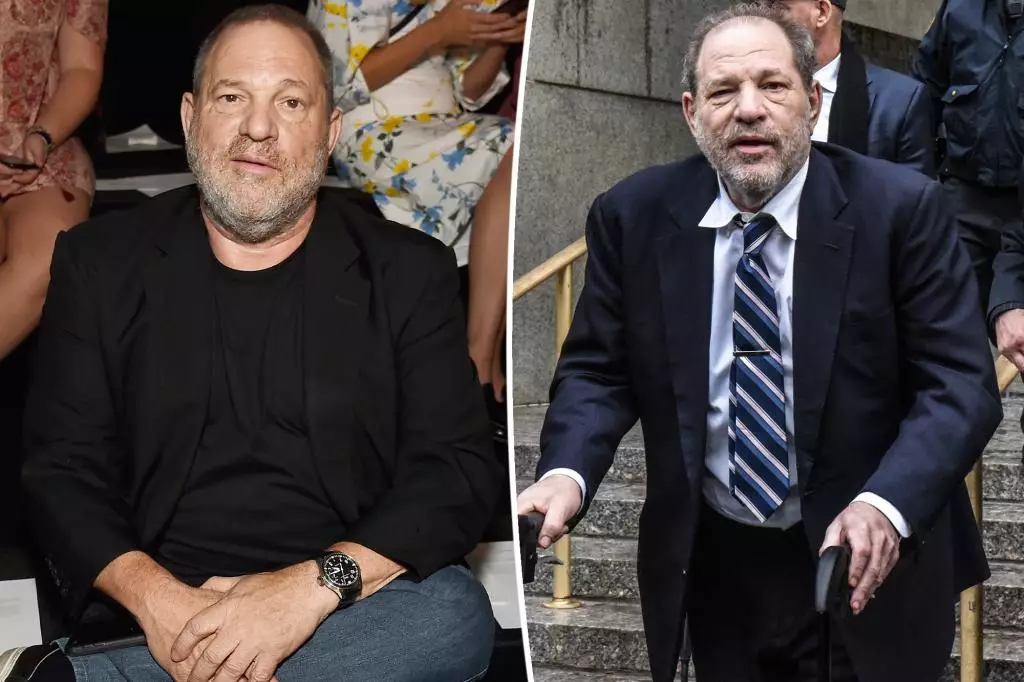In a striking development, Harvey Weinstein, formerly one of Hollywood’s most powerful film producers, has reportedly been diagnosed with cancer while serving a 23-year prison sentence for multiple sexual offenses. The revelation came through unnamed insiders speaking to The New York Post, raising questions not only about his health but also about the ethics surrounding the public’s right to know such personal information. Weinstein’s legal team initially refuted the claims, emphasizing the need for privacy concerning his medical condition. Their condemnation of the speculation showcases the tension between public interest and personal confidentiality.
Weinstein’s notoriety burgeoned with a successful career in film, yet it crumbled amid a torrent of allegations that surfaced in 2017, culminating in the #MeToo movement. This movement empowered numerous women to share their experiences of sexual assault and harassment, a phenomenon that resonated throughout various industries beyond entertainment. Accusations against Weinstein spanned decades, with several women expressing fear about retaliation and career sabotage, which highlights a systemic issue in how powerful individuals exploit their influence to evade accountability.
One notable allegation came from actress Rose McGowan, who was among the first to publicly accuse Weinstein. She recounted a traumatic encounter in 1997 under the guise of a business meeting. Such stories, corroborated by numerous other accusers, depicted a disturbing pattern of predatory behavior that extended back to the 1990s. The repeated assertions of fear among the victims accentuate the toxic power dynamics that persist in many workplaces.
Weinstein’s sentencing in 2020, which reflected the culmination of a long judicial process, was marked by Justice James Burke’s assertion that while this was his first conviction, it certainly was not his first offense. Such commentary underscores the judiciary’s attempt to contend with the implications of Weinstein’s actions—not just as isolated incidents, but as part of a broader societal issue regarding sexual violence and harassment.
In recent years, however, the narrative has taken an unexpected turn with the New York Court’s decision to overturn one of Weinstein’s convictions. The court’s 4-3 ruling and the ensuing debates bring forth stark questions about the integrity and reliability of the judicial system when dealing with high-profile cases. This kind of judicial indecision can potentially undermine the courage of victims who have come forward, possibly dissuading others from seeking justice.
Weinstein’s case is emblematic of a larger cultural reckoning. His public admission during sentencing, where he acknowledged “the different truths” of the women who testified against him, reflects the complexity surrounding issues of consent and accountability. The profound societal implications of the #MeToo movement are still reverberating, prompting important discussions about boundaries, power, and the mechanisms of accountability for those in influential positions.
However, the emergence of new allegations and the appeal processes surrounding Weinstein’s cases have also sparked conversations about fairness and justice in a system that often appears swayed by media influence and public sentiment. The distrust in judicial outcomes, especially in sexual assault cases, can complicate the healing process for survivors and dilute the movement’s successes.
Harvey Weinstein’s cancer diagnosis serves as a profound yet unsettling reminder of the intertwined nature of power, privacy, and justice within society. As discussions around his health and ongoing legal battles unfold, they evoke a need for critical examination of how we approach these delicate topics. The complexities of Weinstein’s situation challenge us to seek a balance between the public’s right to know and the individual’s right to privacy, underscoring the necessity for ethical considerations in both media reporting and legal proceedings.
This saga illustrates not only the chilling realities faced by survivors of sexual misconduct but also the ongoing struggles within our judicial systems that need urgent reform. Ultimately, as society grapples with these multifaceted issues, it is essential to remain vigilant and compassionate, striving for a future where accountability reigns, and justice is genuinely served.

